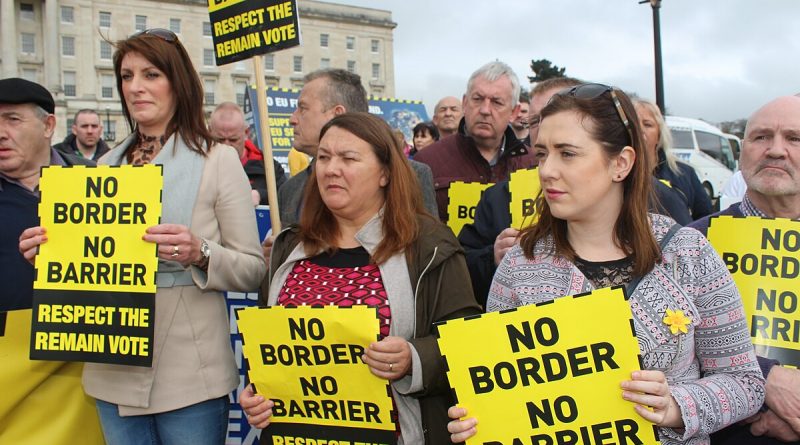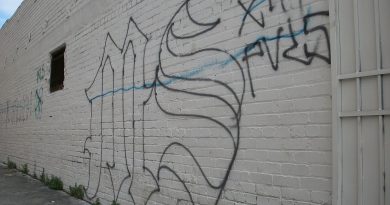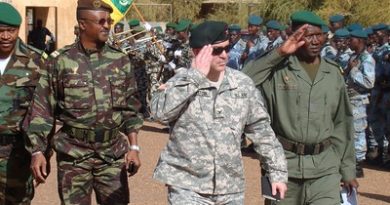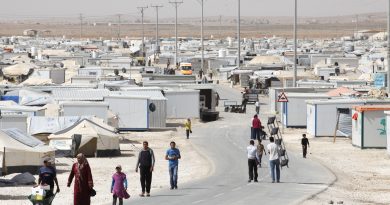Paramilitary Power Struggles: The Terrorist Landscape in Northern Ireland
Kiara McGaughey
Staff Writer
Northern Ireland has a long and complicated history of paramilitary activity, with groups displaying guerilla warfare and attacks of terror in public spaces. This history stems from the Troubles, a low-scale war that began in 1968 and continued until 1998. In the wake of Brexit, Northern Ireland has seen an increase of possible attacks, as well as regular paramilitary activity, in recent months.
Much of the media coverage surrounding current events unfolding in Northern Ireland focuses on the activities of dissident Republican paramilitary groups, such as splinter groups from the Irish Republican Army (IRA). Media coverage often focuses on events such as the groups’ assassinations of political targets and bomb threats. However, recent activity from Unionist Protestant paramilitaries also deserves attention. The groups’ parallel acts of violence and intimidation toward those they believe to be dissenters or, conversely, those they wish to recruit, as well as documentation of British collusion with the Unionist Protestant paramilitary groups during the Troubles, warrants increased media coverage.
The existence of Inionist Protestant forces in Ireland stems from the colonization of Ireland in the 12th century, when English and Scottish settlers gained control of the island. They established several “plantations” throughout in Northern Ireland, most notably in Ulster, where they persecuted the native Irish predominantly through forced serfdom. After the Republic of Ireland gained independence, Irish-Catholics who controlled Northern Ireland wanted to unite with the Republic, whereas the Protestant inhabitants of Northern Island, mostly English and Scottish individuals who were involved in or descended from those involved in colonization, opposed the merger.
Protesters responded by forming the Ulster Defense Association (UDA) and Ulster Volunteer force (UVF). These paramilitary groups sometimes conspired with the British army and the Ulster Defense Regiment (UDR), an arm of the British military. Recently declassified documents share that the groups supplied loyalist paramilitaries with UDR weaponry, encouraged dual membership of the UDR and UDA, and withheld information of UDR identity when trying a soldier in a loyalist paramilitary. These documents explain that most soldiers in the UDR also had joint memberships in loyalist paramilitary groups, working as UDR soldiers during the day and joining paramilitaries at night to help with war efforts or targeting and killing Irish-Catholics and those believed to be Republicans. After years of conflict, loyalist paramilitaries and Unionists signed the “Good Friday Agreement” in 1998, which declared that power was to be balanced by Unionists and Republicans in Northern Ireland’s government, demilitarizing and effectively officially disbanding the organizations.
After the signing of the Good Friday Agreement, the UVF, UDA, and the IRA dissolved formally but continued activities as “splinter groups” and “gangs” which still act through many of the same activities as the original paramilitaries on a smaller scale. In post-conflict settings, splinter groups can become more subtle in their tactics yet more violent. Additionally, the Good Friday Agreement included no formal process of phasing out paramilitaries, which has allowed the UVF and UDA to, for the most part of the decade as well as during the Troubles, control territories and towns by use of force and intimidation. These splinter groups continue their acts of terrorism in an attempt to keep Irish nationalists out of certain areas and to intimidate or blackmail civilians into joining their organizations and help financially support them. According to locals and those anonymously involved with the UVF, “punishment attacks” still occur, in which anyone viewed as supporting or being involved with Irish nationalism or the IRA is beaten or threatened. Nationalists are also deterred from moving into territories with known Unionist activity and vice versa. Locals and business owners in these paramilitary territories must pay the organizations to not be continuously threatened.
As a recruitment tactic, the UVF and UDA have begun money lending operations around food banks and charity centers, reportedly targeting disadvantaged people who cannot pay for essentials such as groceries and offering to lend them money. The loan operations are displayed at first as not being connected to the paramilitaries. However, the debts from the operations are described as nearly impossible to pay off, trapping individuals. The groups then show their paramilitary connections and force people into becoming members, asking them to protest with them and handle illegal exchanges such as funneling drugs. Victims’ involvement further them into more illegal activity with less likelihood of escaping. It is also reported that paramilitary territory is most likely protected and fought over due to the exchange of drugs.
The occurrence of Brexit has also increased tensions in Northern Ireland, as terror attacks, assaults and threats have been more commonly reported since 2019, the year of Brexit’s announcement. Both Republican and Unionist splinter groups have increased their public campaigns and made their objectives bolder.
In 2021, the UVF, UDA, and the Red Hand Commando renounced their signing of the Good Friday Agreement. Under the Brexit deal, Northern Ireland remains within the European Union’s (EU) market for goods, rather than within the UK’s economy. The joint letter between the paramilitaries explains they do not want to reignite conflict but warn of “‘permanent destruction’ of the 1998 peace agreement without changes to post Brexit arrangements for Northern Ireland,” according to The Guardian. The demands also face criticism as Irish Republicans feel Northern Ireland benefits most from the single EU economy.
Activity from paramilitary groups has also included an increase in violence. MI5, a group that monitors the terrorism risk in Northern Ireland, raised the terror threat to severe this April, meaning an attack was very likely. On April 10, the day before a visit from U.S. President Joe Biden, masked, dissident Republicans threw petrol bombs at a police car during a parade opposing the Good Friday Agreement. The week after, riots started to break out in Loyalist areas as protesters threw bricks and petrol bombs at police in response to the continued plans of Brexit’s terms for Northern Ireland. NBC explains that Unionists feel that the Northern Irish and British police treat them more harshly than they do nationalists, as they unfairly side with nationalists. The notions were furthered when prosecutors chose not to press charges against members of the Sinn Fein party, a nationalist group, who attended the funeral of IRA leader Bobby Storey during COVID-era restrictions on mass gatherings.
Despite Union beliefs that the UK may be undermining their loyalism or citizenship, recent decisions such as amendments to the UK’s Northern Ireland Conflict Bill, used originally to protect former British security from prosecution, have extended immunity toward former British soldiers including those in the UDR and police force responsible for crimes during the Troubles. The amendments of this bill, and knowledge that most in the UDR also have worked with loyalist paramilitaries, brings forth the worrying and overwhelming fact that loyalist groups and British colonization and control of Northern Ireland are connected intrinsically. British monitoring and countermeasures towards terrorism may be skewed in Unionist favor, despite the strong risk that Unionist paramilitaries create through territorial disputes and escalating conflicts with Republican groups. While the UK views both Unionist and Republican paramilitary groups as threats to the safety of the public, most British intelligence and media coverage focus on quelling dissident Republican groups, while viewing Unionist activity as less concerning. To create an effective response, intelligence in both Northern Ireland and the United Kingdom should view all paramilitaries as equal threats due to their ability to escalate conflicts, intimidate towns, and foster the creation and use of arms. Such intelligence may also be inherently swayed towards Unionist paramilitaries because of British collusion and interests of wanting Northern Ireland as an asset of the UK.
Image courtesy of Sinn Fein, Wikimedia Commons




